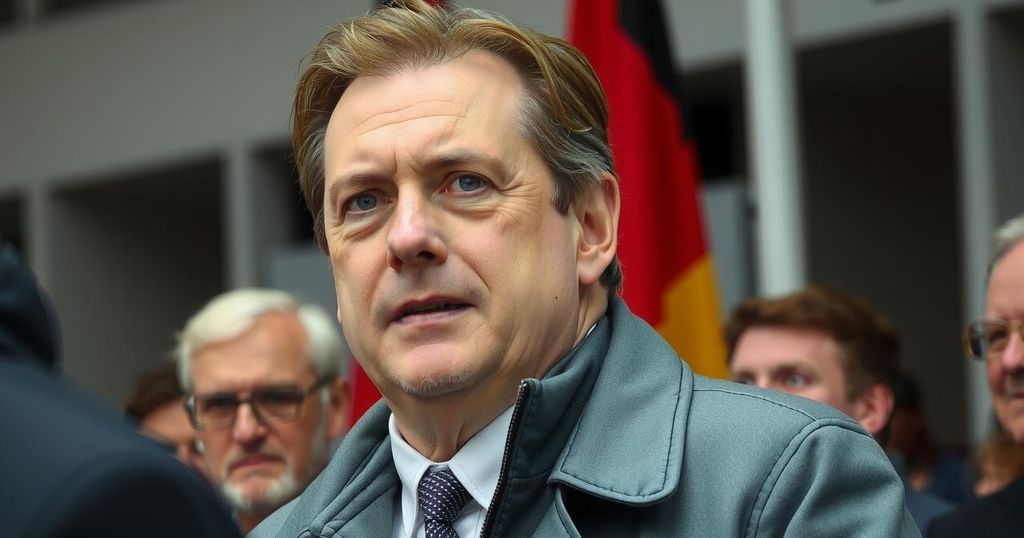German Government Responds to Musk’s Support for Far-Right Party

The German government is attempting to downplay Elon Musk’s endorsement of the far-right AfD party amid upcoming elections. Musk’s opinion piece spurred controversy, leading to the resignation of an editor at the newspaper that published it. The government highlights that the AfD is under surveillance for extremist tendencies. Despite favorable polling, the AfD’s chances of success remain uncertain due to lack of collaboration with other parties.
The German government has made efforts to downplay the recent endorsement by tech entrepreneur Elon Musk of the far-right Alternative for Germany (AfD) party, coinciding with an upcoming election. Following Musk’s controversial opinion piece that appeared in a prominent newspaper, which prompted the resignation of the publication’s opinion editor, government spokesperson Christiane Hoffmann acknowledged Musk’s attempts to influence the federal election but refrained from offering further commentary on his statements. The AfD is currently under surveillance by Germany’s domestic intelligence agency due to suspicions of extremism, raising concerns about the implications of Musk’s support.
As Germany prepares for an early election on February 23 following the collapse of Chancellor Olaf Scholz’s governing coalition, Musk made headlines by stating in his article, published in Welt am Sonntag, that the AfD represents the “last spark of hope” for Germany, asserting that the party could pave the way for economic success and innovation. Despite the party’s favorable polling, its candidate, Alice Weidel, faces challenges in gaining support from other political factions. Critics of Musk’s opinion argue that his characterization of the AfD as falsely depicted as extremist is misleading, citing the party’s controversial positions. His comments have ignited discussions in German media about the limits of free speech, culminating in the resignation of Eva Marie Kogel from the opinion section of Welt, who voiced her discontent over the article appearing in the publication.
The article addresses the recent involvement of Elon Musk in Germany’s political landscape, specifically his support for the Alternative for Germany (AfD), a party under scrutiny for its far-right ideologies. The backdrop of this situation includes an impending election in which the AfD’s influence is significant, while national sentiment and political integrity against extremism are key issues. The discussion sends ripples through media and political circles in Germany about freedom of expression, especially concerning foreign voices participating in domestic affairs.
In conclusion, the German government’s reaction to Elon Musk’s endorsement of the AfD reveals the tension between freedom of speech and the potential influence of foreign individuals on national politics. As Germany approaches its critical election, the implications of Musk’s statements and the subsequent media response could shape public discourse regarding extremism and the role of social media in electoral processes. The ongoing debate reflects broader concerns about the boundaries of expression in contemporary political contexts.
Original Source: apnews.com







